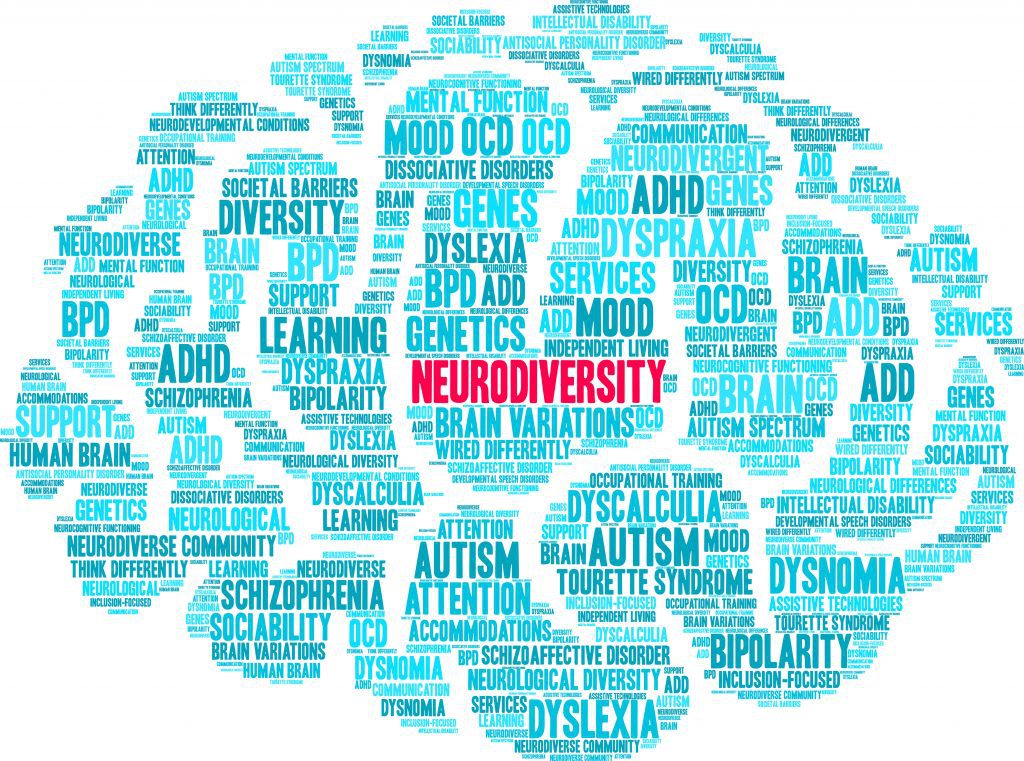
Over the past few years, there has been an increased awareness centered on neurodiversity.
It has been incredible to see the increase of neurodivergent employees speaking up during the early stages of the pandemic and preferring work from home. The pandemic is behind us now and unfortunately not every company is staying remote. If you work in human resources, as a manager, or in any leadership role knowing how to support neurodiversity in the workplace to make employees feel safe is vital for productivity. This article offers ways that you can help make your workplace more inclusive and supportive of neurotypical individuals.
What is Neurodiversity?
Neurodiversity refers to the idea that different minds, like different bodies, are good in their own ways. It should be accepted as part of the rich human tapestry of neurotypical and neurodiverse while interacting with each other.
Neurodiversity advocates believe that neurodivergence is just one variation among many within the human race, and all individuals should be accepted as they are. Some of these conditions include being diagnosed with a neurodevelopmental disability such as ADHD, dyslexia, autism, bipolar disorder, schizophrenia, or Tourette syndrome.
How to Support Neurodiversity in the Workplace
1. Communicate Clearly
One of the most important things you can do to support neurodiversity is to ensure that people in the category feel like they are being heard. People with non-neurotypical brains need to have the opportunity to express themselves without feeling judged, dismissed, or misunderstood. This will help them feel empowered and confident enough to share their ideas again.
Also, meet people where they are when it comes to their preferred communication style. Whether it is an open door (Zoom) policy, email, Slack, or audio notes. As a leader, it is important to remain considerate of all people, but especially those that state their needs.
2. Revamp Your Hiring Practices
The workplace is one of the most important places for neurodiversity to thrive. This means employers must be proactive about welcoming neurodiverse people into the workforce and creating a safe and inclusive work environment.
Make accommodations if necessary to allow a neurodivergent employee to continue working and performing at an acceptable level; this might mean allowing them flexible hours, providing breaks throughout the day, or offering additional time off when needed.
3. Provide Training and Coaching
The best way to support neurodiverse employees is to provide them with the opportunity to develop their skills and abilities. However, this can be tricky for some business owners who are unsure how or where to begin.
Here are ways you can start:
- Develop your understanding of neurodiversity by reading materials, attending workshops or conferences, and talking with people with a neurotypical perspective.
- Find out what accommodations your employees need by asking them directly.
- Provide training on creating an inclusive environment that welcomes diverse perspectives and offers flexibility when possible.
- Offer to coach so that employees feel more supported in their roles as they grow into new responsibilities.
4. Use Positive, Inclusive Language
The neurodiversity movement is a social justice movement that seeks to understand, accommodate, and support people who have neurological differences. We all must consider this when working with people on the autism spectrum or with other neurological differences. When around them, use positive and inclusive language.
Furthermore, remain mindful of internal communications when addressing employees and receiving information.
5. Engage With Community Groups
Engaging with community groups is an excellent way to support neurodiversity. Volunteer at a local center or other organization that supports the needs of those living with disorders. Join in conferences and workshops that provide information about best practices for supporting people with disabilities. Offer your perspective by participating in panels focused on neurodiversity.
Perhaps, your organization can create an employee resource group for neurodivergent employees. Determine if the interest is there, find a sponsor, and rally the troops. ERGs help employees navigate the workplace and career mobility. Plus, some individuals may find themselves stronger as a collective when it comes to addressing company issues and implementing tips to improve the environment.
Conclusion
Neurodiversity is an umbrella term for people whose brains process information differently than what is considered normal. However, there are many ways employers can adapt their office space to make it more comfortable for those with neuro disabilities.
As an inclusive marketing consultancy, we like to work with cause-based organizations regarding all of their diversity, equity, and inclusion needs. If you believe your team needs help in this area, I would like for you to schedule a free 30-minute consult with me.